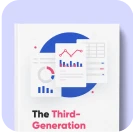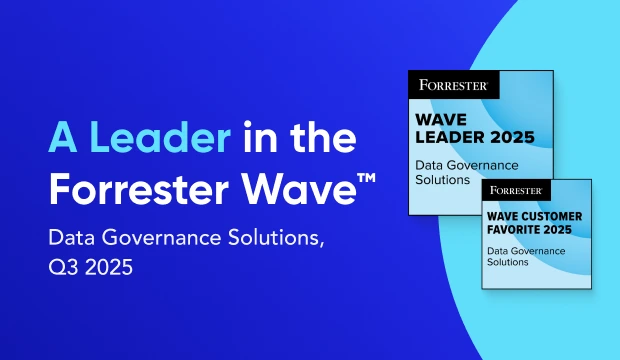Must-Read GDPR Resources: You Don’t Want to Miss them!

Share this article
Navigating the complex landscape of data privacy regulations, particularly the General Data Protection Regulation (GDPR), is a significant challenge for businesses.
Non-compliance risks hefty fines and reputational damage.
Modern data problems require modern solutions - Try Atlan, the data catalog of choice for forward-looking data teams! 👉 Book your demo today
GDPR resources provide essential guidance and tools to ensure compliance, simplifying data management and building consumer trust. This mitigates legal risks and allows companies to focus on their core operations.
In this article, we’ve compiled a list of our best GDPR resources for streamlining your journey to be GDPR compliant. So, let’s dive in!
Table of contents #
- Data governance and GDPR: An interrelationship?
- The benefits of GDPR compliance and data governance
- GDPR personal data: What is it?
- 16 Essential GDPR questions to ask
- GDPR risk-based approach: 6 Steps to get it done!
- Summary
- Related reads
The General Data Protection Regulation (GDPR) isn’t just another piece of bureaucratic legislation from the European Union. Instead, it’s a groundbreaking shift that’s echoing across the world’s digital corridors. Ratified in April 2016 and enforced on May 25, 2018, GDPR might have started as an EU-centric initiative.
However, its influence is far-reaching, touching shores beyond European borders. While its primary goal is to empower EU citizens with unparalleled control over their personal data, it has also made global businesses sit up and take notice, eager to decipher its nuances.
At the heart of GDPR lie seven core principles, evolving into a golden standard for data protection.
- Lawful processing of data
- Purpose limitation
- Data minimization
- Data accuracy
- Storage limitation
- Data integrity and confidentiality
- Accountability and governance
What makes these principles so transformative? Why are they catalyzing a global reevaluation of data privacy norms? Delving into its layers reveals the lasting imprint GDPR is making on our interconnected digital worlds.
Read more → Demystifying GDPR: A Guide for Compliance
Data governance and GDPR: An interrelationship? #
Data governance refers to the management of data availability, usability, integrity, and security within an organization. With the introduction of the General Data Protection Regulation (GDPR), data governance has taken on heightened importance.
GDPR mandates strict guidelines on how personal data of EU citizens is collected, stored, processed, and shared.
Effective data governance ensures compliance with these regulations by providing clear protocols, responsibilities, and structures for data management. It emphasizes transparency, accuracy, and accountability, ensuring personal data is treated with the utmost care and respect.
Thus, GDPR acts as a catalyst, urging organizations to prioritize and refine their data governance strategies.
To learn more, check this out → Data Governance and GDPR: A Comprehensive Guide to Achieving Regulatory Compliance
Now, let’s quickly explore the benefits of GDPR compliance and data governance quickly.
The benefits of GDPR compliance and data governance #
GDPR compliance and robust data governance bring multifaceted benefits to organizations. Beyond fulfilling regulatory mandates, these practices boost consumer trust, as individuals recognize and value businesses that respect and protect their personal data.
- Implementing GDPR measures often streamlines data handling processes, eliminating redundancies and ensuring data accuracy. As a result, organizations can make more informed decisions based on higher-quality data.
- Furthermore, by setting a high bar for data security, businesses significantly reduce their risk of costly breaches and the associated reputational damage.
- In essence, GDPR compliance and strong data governance not only foster legal adherence but also enhance operational efficiency and foster consumer loyalty.
To learn more about the benefits of GDPR compliance, click here: The Benefits of GDPR Compliance and Data Governance: Protecting Your Data and Your Business
GDPR personal data: What is it? #
The GDPR, an influential European Union regulation, defines “personal data” broadly to protect individuals’ privacy rights.
Personal data under GDPR encompasses any information that can identify a person, either directly or indirectly.
This includes obvious identifiers like names and identification numbers. But it also spans to less direct data such as location information, IP addresses, or even factors specific to physical, physiological, genetic, mental, economic, cultural, or social identity of that person.
Furthermore, certain “special categories” of data, such as race, religion, or biometric data, receive higher protection due to their sensitivity. Overall, GDPR’s expansive definition underscores the commitment to robust data protection.
To learn more about the examples, principles and components → GDPR personal data explained
16 Essential GDPR questions to ask in 2023 #
In 2023, as the digital landscape continues to evolve, GDPR remains a crucial framework for data protection. Therefore, it’s imperative to routinely reassess compliance. Key questions to consider include:
- Are the data consent mechanisms current and transparent?
- How is data storage security ensured?
- Is there a system for timely breach notifications?
- Are Data Protection Impact Assessments conducted for high-risk processing?
- How are international data transfers managed?
- Are third-party vendors GDPR-compliant?
- Is there a designated Data Protection Officer?
- How are data subjects’ rights, like access or erasure, facilitated?
Is ongoing GDPR training provided? By addressing these pivotal questions, organizations can ensure continued adherence to GDPR’s rigorous standards.
To know more about the essential questions of GDPR in detail. Click here → Essential GDPR questions
Finally, GDPR risk-based approach: 6 Steps to get it done! #
The risk-based approach under GDPR is a strategic method to identify, assess, and prioritize risks associated with the processing of personal data. It forms the cornerstone of any comprehensive GDPR compliance strategy by focusing on the most critical areas where a data breach or misuse could occur.
- Identification of risks
- Assessment of risks
- Prioritization of risks
- Implementation of measures
- Monitoring and review
- Documentation
Understanding and executing these steps proficiently enables organizations to manage risks effectively while also ensuring GDPR compliance.
Note: Adopting a risk-based approach is not just a requirement under GDPR; it’s also a best practice that offers the dual benefit of protecting an organization from the legal ramifications of non-compliance and safeguarding the privacy of individuals.
Failing to adopt this approach leaves organizations vulnerable to data breaches, hefty fines, and reputational damage
And if you want to learn more about those steps, click here → Achieving GDPR Conformity Via Risk Analysis and Mitigation
Summary #
The ever-evolving digital landscape has made data protection and privacy a paramount concern for individuals and businesses alike. The General Data Protection Regulation (GDPR) stands as a beacon of robust data protection standards in this complex environment.
Through this guide on “Must Read GDPR Resources,” readers gain not only a comprehensive understanding of GDPR’s origins and principles but also its practical implications across various sectors.
By delving into real-world case studies, sector-specific insights, and comparisons with other global regulations, we equip ourselves to navigate the intricacies of data privacy more effectively.
As the world moves towards a more interconnected digital future, staying informed through resources like this guide becomes essential to ensuring that we uphold the principles of data protection and respect individuals’ rights in our professional endeavors.
Must-read GDPR resources: Related reads #
- Data Governance Process: Why Your Business Can’t Succeed Without It
- Data Governance and Compliance: Act of Checks & Balances
- Tide’s Story of GDPR Compliance: Embedding Privacy into Automated Processes
- How Crucial is Data Governance for Data Privacy?
- Data Sovereignty: Requirements, Importance, Step-by-Step Guide & a Lot More
Share this article











